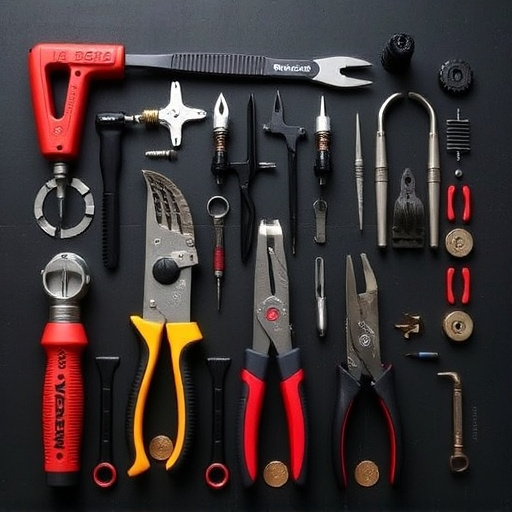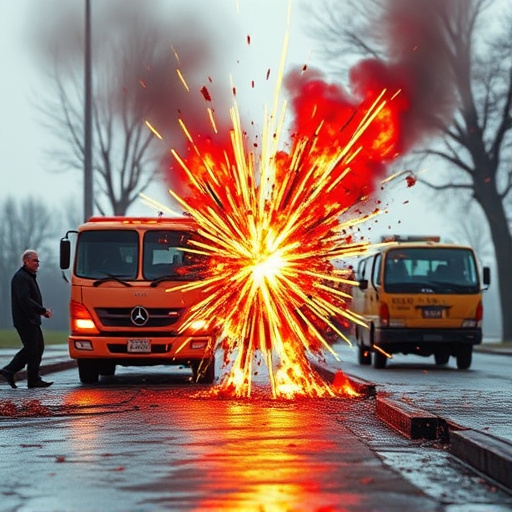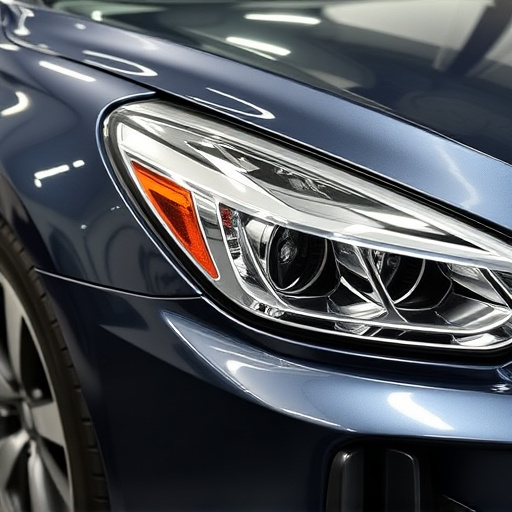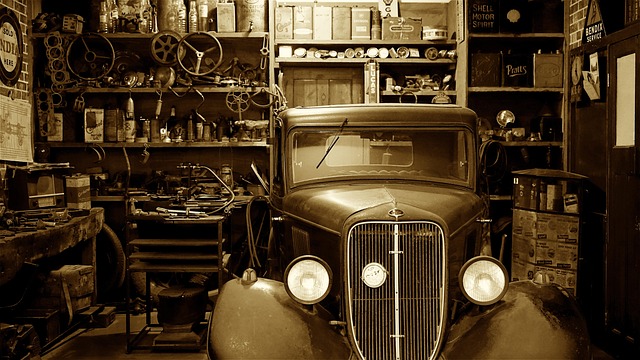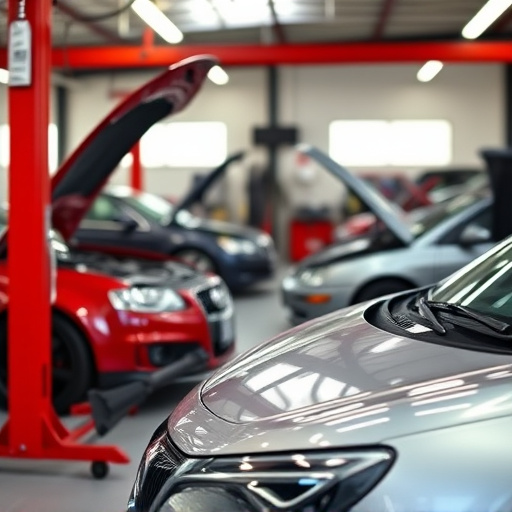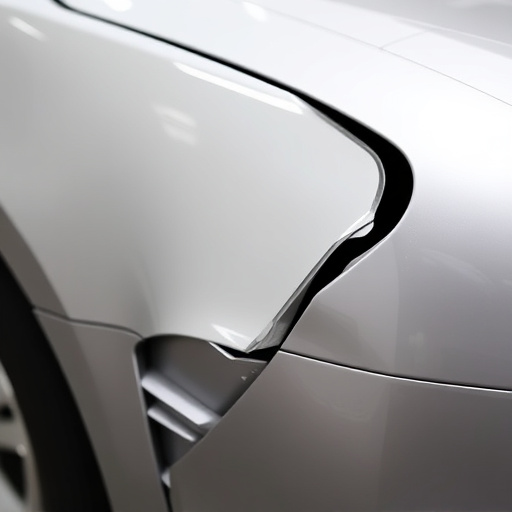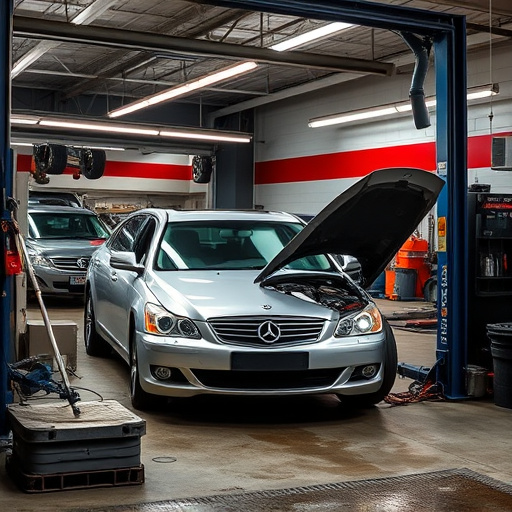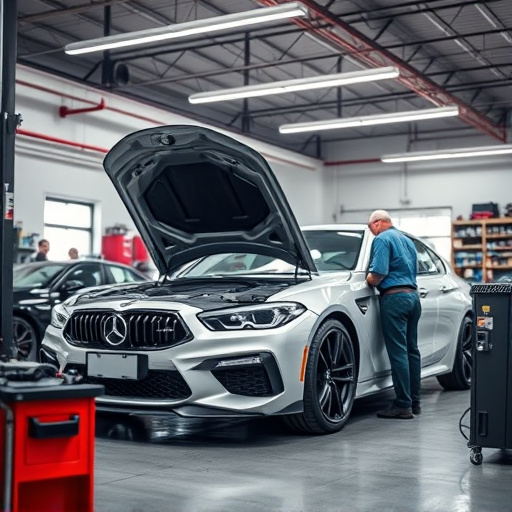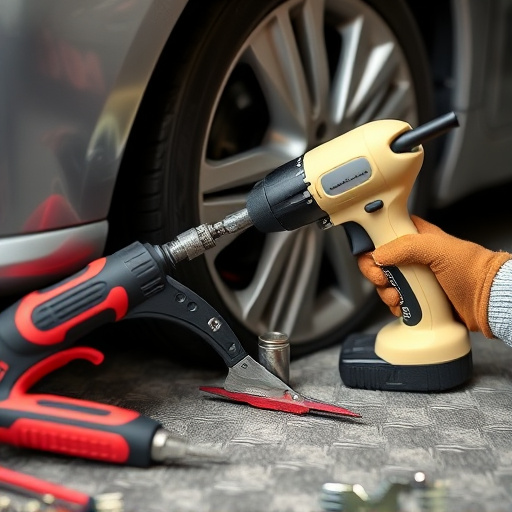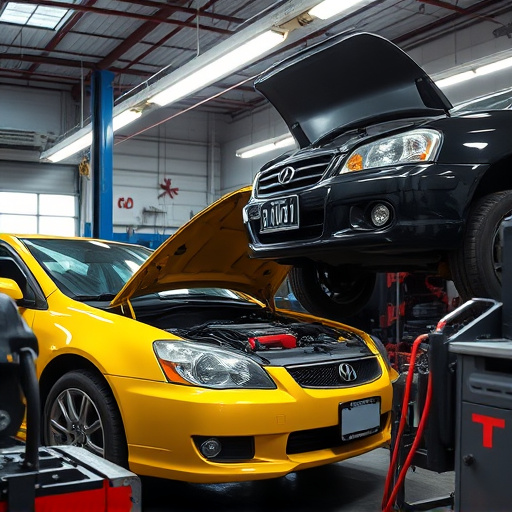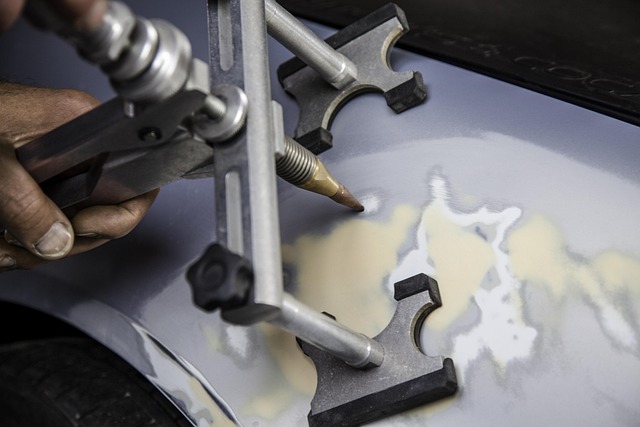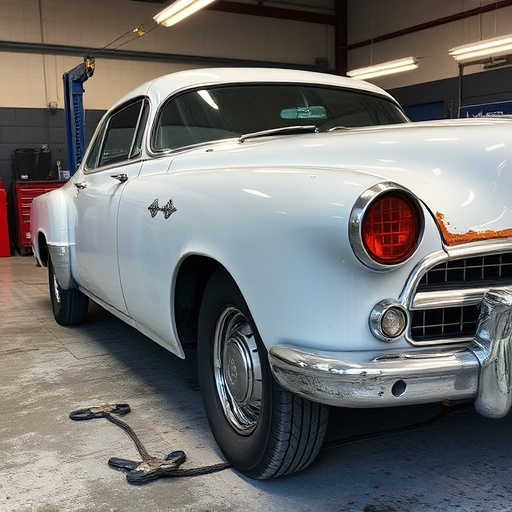Precision collision repair is a modern auto body work approach focusing on meticulous standards, advanced tools, and techniques to restore vehicles to pre-incident condition both aesthetically and structurally. Key components like frame straightening ensure vehicle longevity by accurately realigning metallic parts. Continuous training empowers technicians with specialized skills, enabling them to handle diverse repairs while adhering to safety protocols. By staying informed through industry events and regular training, professionals deliver exceptional services, keeping up with dynamic precision collision repair practices.
In today’s automotive landscape, precision collision repair has emerged as a game-changer. As vehicles become increasingly complex, traditional body shop practices fall short. Skilled technicians armed with advanced training are crucial for restoring vehicles to their pre-accident condition using cutting-edge technology and meticulous techniques. This article explores the significance of precision collision repair training, highlighting enhanced skills, improved quality assurance, and best practices for continuous learning in this dynamic field.
- Understanding Precision Collision Repair: The Modern Approach to Auto Body Work
- Benefits of Training: Enhancing Skills and Ensuring Quality
- Best Practices for Continuous Learning: Staying Ahead in the Industry
Understanding Precision Collision Repair: The Modern Approach to Auto Body Work
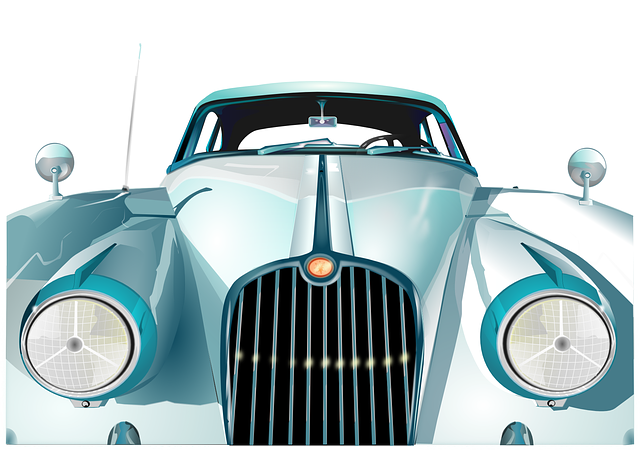
Precision collision repair represents a modern approach to auto body work, emphasizing exacting standards and minimal material waste. It’s more than just fixing dents; it involves skilled technicians using advanced tools and techniques to restore vehicles to their pre-incident condition. This method ensures not only aesthetic perfection but also structural integrity, crucial for safety.
Gone are the days when fender repair was a straightforward, one-size-fits-all process. Today’s collision repair services demand a nuanced understanding of vehicle construction and materials. Frame straightening, for instance, is a critical component of precision repair, requiring specialists to accurately realign metallic components to prevent future structural issues. This level of detail and care ensures not just a visually appealing finish but also the longevity of the vehicle.
Benefits of Training: Enhancing Skills and Ensuring Quality

Training in precision collision repair enhances the skills of technicians and ensures the quality of repairs. In a field where attention to detail is paramount, continuous learning allows professionals to stay updated with the latest tools, techniques, and safety protocols. This specialized training enables them to accurately assess and address complex damage, from minor dents and scratches to major structural issues. By investing in their education, collision repair centers can offer superior collision repair services, ensuring that every vehicle returns to the road looking like new.
Moreover, well-trained technicians are more equipped to handle a variety of car body repairs, from painting and paneling to mechanical adjustments. This expertise not only boosts customer satisfaction but also contributes to the overall reputation of the collision repair center. As competition grows in the industry, prioritizing quality through training becomes a strategic advantage, setting apart top-tier centers that deliver exceptional car body repair services.
Best Practices for Continuous Learning: Staying Ahead in the Industry

In the dynamic landscape of automotive industry, staying ahead in precision collision repair requires a commitment to continuous learning and best practices. As new technologies emerge, techniques evolve, and customer expectations rise, professionals in car body shops and vehicle dent repair services must adapt accordingly. Regular training sessions, workshops, and certifications are not just beneficial; they’re essential for keeping up with advancements in materials, tools, and procedures. This ongoing education ensures that technicians remain adept at offering top-notch car repair services, addressing complex issues with precision and efficiency.
One of the key best practices is embracing a culture of knowledge-sharing among peers and within the industry. Attending trade shows, participating in online forums, and engaging with professional associations expose individuals to innovative ideas and best practices in precision collision repair. Staying connected with like-minded professionals allows for collective growth and ensures that car body shop technicians are equipped to handle even the most intricate vehicle dent repairs with confidence and skill.
Precision collision repair is not just a skill but an art that demands continuous learning and adaptation. As the automotive industry evolves, so too must the techniques and training behind repairing vehicles. Investing in comprehensive training ensures that technicians can deliver high-quality, precise work, meeting modern standards and customer expectations. By embracing best practices and staying committed to lifelong learning, professionals in this field can maintain their edge and contribute to the growing demand for skilled precision collision repair services.

